UC Press is proud to have so many of our authors speaking at the Los Angeles Times Festival of Books this weekend, April 22-23, at the University of Southern California campus. The event is free and open to the public but do require tickets. Be sure to attend the conversations with our UC Press authors.
SATURDAY, APRIL 22
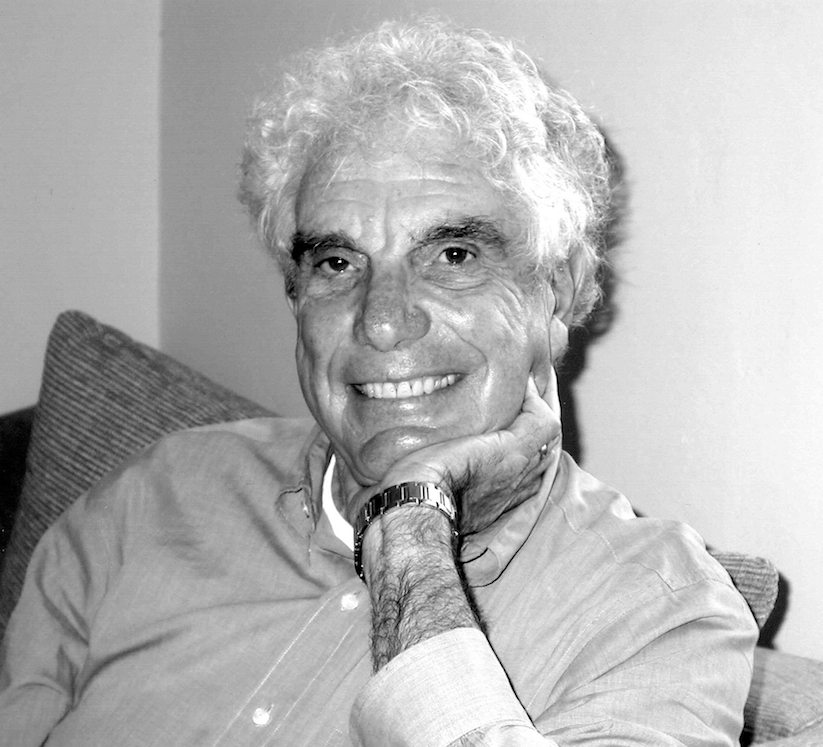 10:30am: Bill Boyarsky, author of Big Daddy, will moderate The Women Behind the Power
10:30am: Bill Boyarsky, author of Big Daddy, will moderate The Women Behind the Power
Big Daddy is a highly engaging biography that tells the story of an American original, California’s Big Daddy, Jesse Unruh (1922-1987), a charismatic man whose power reached far beyond the offices he held. Unruh became a larger-than-life figure and a principal architect and builder of modern California—first as an assemblyman, then as assembly speaker, and finally, as state treasurer. He was also a great character: a combination of intelligence, wit, idealism, cynicism, woman-chasing vulgarity, charm, drunken excess, and political skill. Bill Boyarsky gives a close-up look at this extraordinary political leader, a man who believed that politics was the art of the possible, and his era.
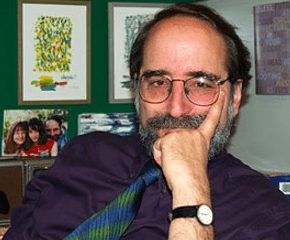 10:30am: Lawrence Weschler, author of True to Life and Seeing is Forgetting the Name of the Thing One Sees, is in conversation in The Artist as Muse
10:30am: Lawrence Weschler, author of True to Life and Seeing is Forgetting the Name of the Thing One Sees, is in conversation in The Artist as Muse
In True to Life, Weschler chronicles David Hockney’s protean production and speculations, including his scenic designs for opera, his homemade xerographic prints, his exploration of physics in relation to Chinese landscape painting, his investigations into optical devices, his taking up of watercolor—and then his spectacular return to oil painting, around 2005, with a series of landscapes of the East Yorkshire countryside of his youth. These conversations provide an astonishing record of what has been Hockney’s grand endeavor, nothing less than an exploration of “the structure of seeing” itself.
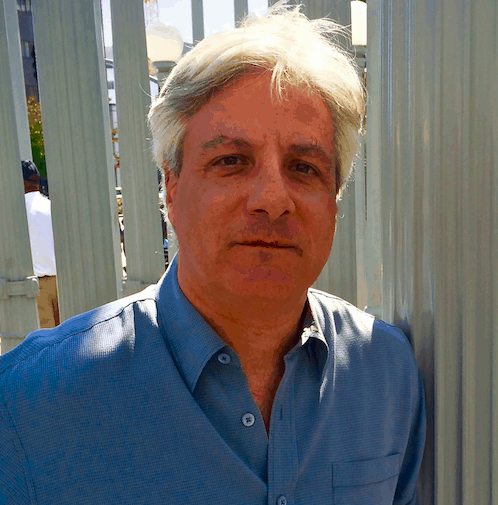 11:00am: David L. Ulin, author of Sidewalking, will moderate Fiction: The Storytellers
11:00am: David L. Ulin, author of Sidewalking, will moderate Fiction: The Storytellers
In Sidewalking, Ulin offers a compelling inquiry into the evolving landscape of Los Angeles. Part personal narrative, part investigation of the city as both idea and environment, Sidewalking is many things: a discussion of Los Angeles as urban space, a history of the city’s built environment, a meditation on the author’s relationship to the city, and a rumination on the art of urban walking. Exploring Los Angeles through the soles of his feet, Ulin gets at the experience of its street life, drawing from urban theory, pop culture, and literature. For readers interested in the culture of Los Angeles, this book offers a pointed look beneath the surface in order to see, and engage with, the city on its own terms.
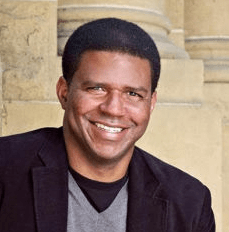 12:00pm: Corey Fields, author of Black Elephants in the Room, is in conversation
12:00pm: Corey Fields, author of Black Elephants in the Room, is in conversation
in The Grand Old Party
Black Elephants in the Room considers how race structures the political behavior of African American Republicans and discusses the dynamic relationship between race and political behavior in the purported “post-racial” context of US politics. Drawing on vivid first-person accounts, the book sheds light on the different ways black identity structures African Americans’ membership in the Republican Party. Moving past rhetoric and politics, we begin to see the everyday people working to reconcile their commitment to black identity with their belief in Republican principles. And at the end, we learn the importance of understanding both the meanings African Americans attach to racial identity and the political contexts in which those meanings are developed and expressed.
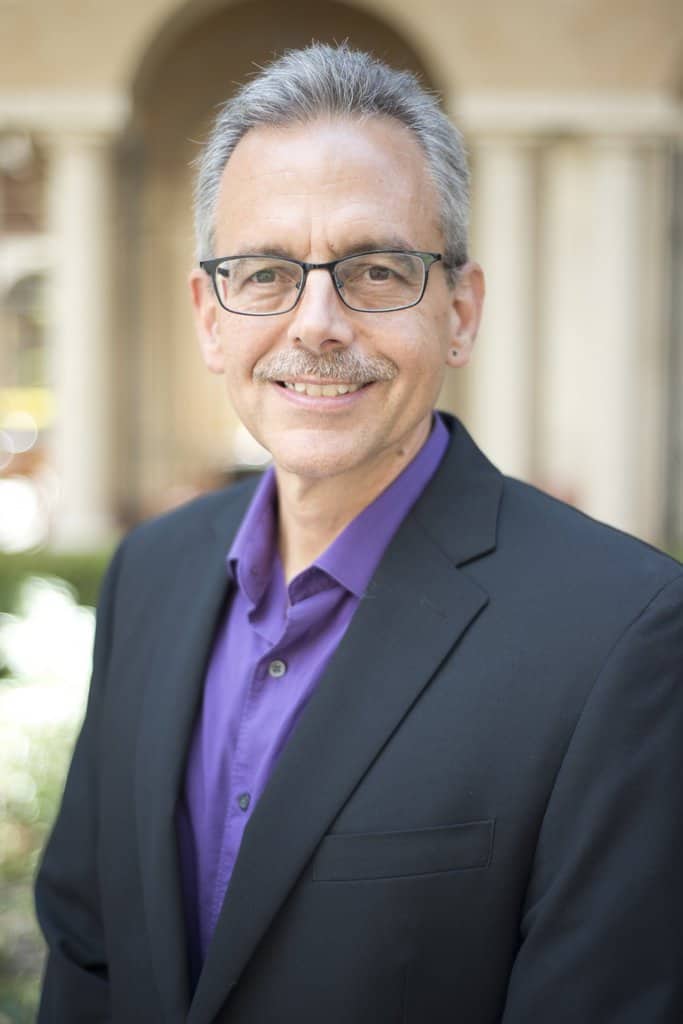 12:00pm: Manuel Pastor, author of Equity, Growth, and Community, is in conversation in Walls and Lines in the Sand: The Shifting Landscapes of Immigration
12:00pm: Manuel Pastor, author of Equity, Growth, and Community, is in conversation in Walls and Lines in the Sand: The Shifting Landscapes of Immigration
A free ebook version of this title is available through Luminos, University of California Press’s new open access publishing program for monographs.
In the last several years, much has been written about growing economic challenges, increasing income inequality, and political polarization in the United States. This book argues that lessons for addressing these national challenges are emerging from a new set of realities in America’s metropolitan regions: first, that inequity is, in fact, bad for economic growth; second, that bringing together the concerns of equity and growth requires concerted local action; and, third, that the fundamental building block for doing this is the creation of diverse and dynamic epistemic (or knowledge) communities, which help to overcome political polarization and help regions address the challenges of economic restructuring and social divides.
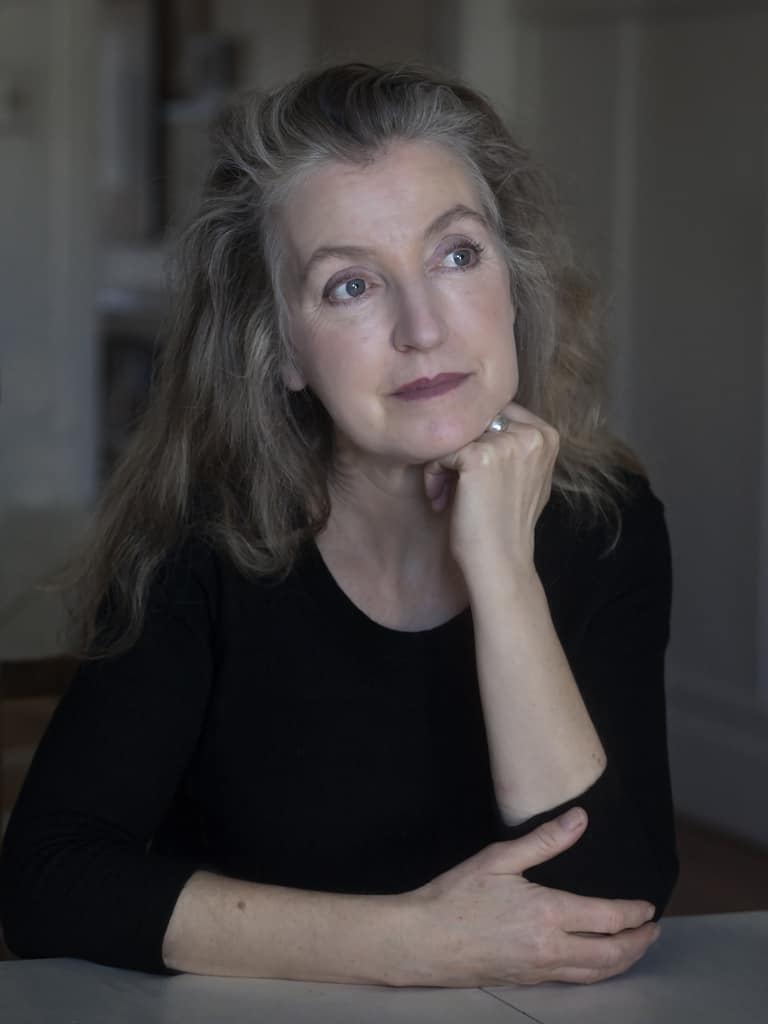 12:30pm: Rebecca Solnit, editor of the city atlas series: Infinite City, Unfathomable City, and Nonstop Metropolis, will be in conversation in Nonfiction: The Future is Female
12:30pm: Rebecca Solnit, editor of the city atlas series: Infinite City, Unfathomable City, and Nonstop Metropolis, will be in conversation in Nonfiction: The Future is Female
Nonstop Metropolis, the culminating volume in a trilogy of atlases, conveys innumerable unbound experiences of New York City through twenty-six imaginative maps and informative essays. Bringing together the insights of dozens of experts—from linguists to music historians, ethnographers, urbanists, and environmental journalists—amplified by cartographers, artists, and photographers, it explores all five boroughs of New York City and parts of nearby New Jersey. We are invited to travel through Manhattan’s playgrounds, from polyglot Queens to many-faceted Brooklyn, and from the resilient Bronx to the mystical kung fu hip-hop mecca of Staten Island. The contributors to this exquisitely designed and gorgeously illustrated volume celebrate New York City’s unique vitality, its incubation of the avant-garde, and its literary history, but they also critique its racial and economic inequality, environmental impact, and erasure of its past. Nonstop Metropolis allows us to excavate New York’s buried layers, to scrutinize its political heft, and to discover the unexpected in one of the most iconic cities in the world. It is both a challenge and homage to how New Yorkers think of their city, and how the world sees this capital of capitalism, culture, immigration, and more.
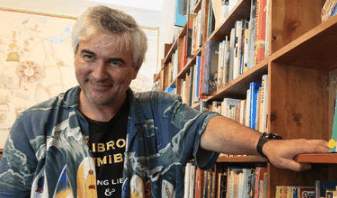 1:30pm: David Kipen, of California in the 1930s, Los Angeles in the 1930s, San Francisco in the 1930s, and San Diego in the 1930s, in conversation in Writing California and Beyond
1:30pm: David Kipen, of California in the 1930s, Los Angeles in the 1930s, San Francisco in the 1930s, and San Diego in the 1930s, in conversation in Writing California and Beyond
Los Angeles in the 1930s returns to print an invaluable document of Depression-era Los Angeles, illuminating a pivotal moment in L.A.’s history, when writers like Raymond Chandler, Nathanael West, and F. Scott Fitzgerald were creating the images and associations—and the mystique—for which the City of Angels is still known. Many books in one, Los Angeles in the 1930s is both a genial guide and an addictively readable history, revisiting the Spanish colonial period, the Mexican period, the brief California Republic, and finally American sovereignty. It is also a compact coffee table book of dazzling monochrome photography. These whose haunting visions suggest the city we know today and illuminate the booms and busts that marked L.A.’s past and continue to shape its future.
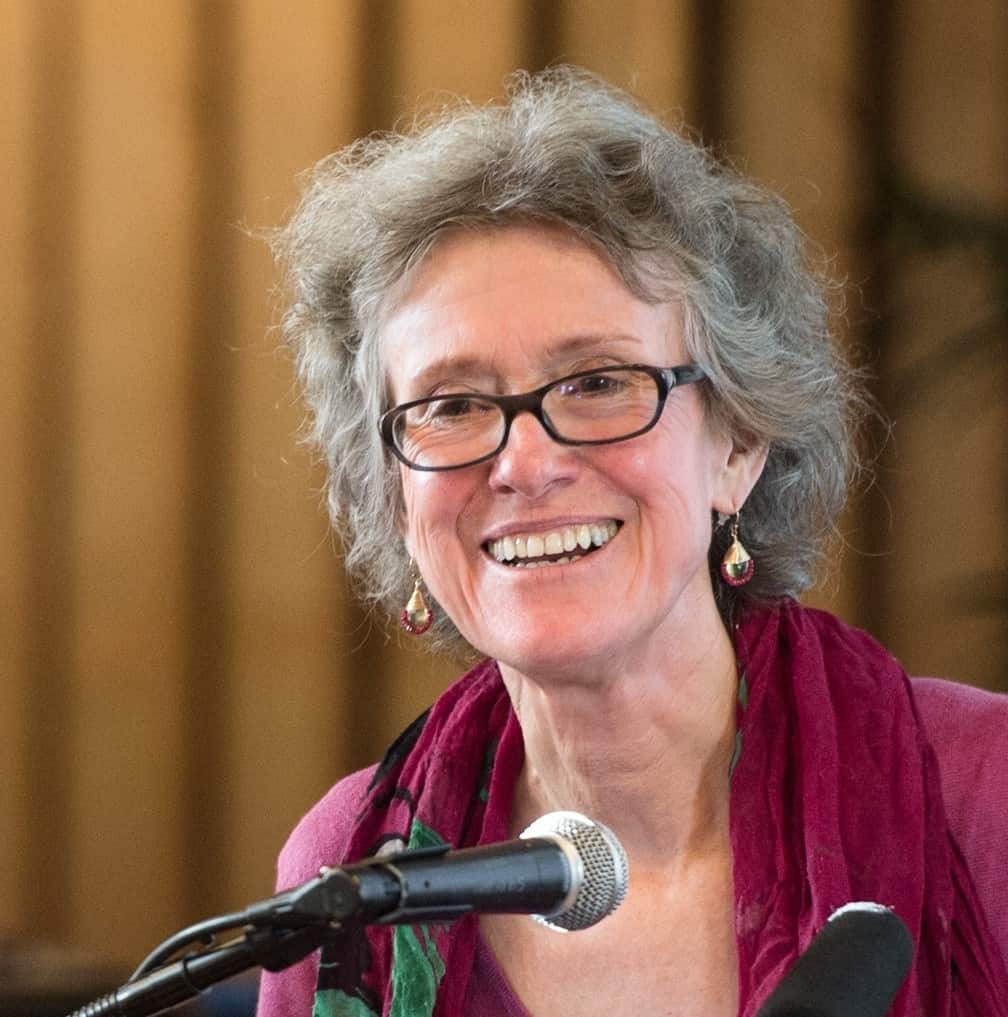
2:00pm: Arlie Russell Hochschild, author of The Managed Heart and So How’s the Family, in conversation in President Trump
In So How’s the Family, a new collection of thirteen essays, Hochschild—focuses squarely on the impact of social forces on the emotional side of intimate life. From the “work” it takes to keep personal life personal, put feeling into work, and empathize with others; to the cultural “blur” between market and home; the effect of a social class gap on family wellbeing; and the movement of care workers around the globe, Hochschild raises deep questions about the modern age. In an eponymous essay, she even points towards a possible future in which a person asking “How’s the family?” hears the proud answer, “Couldn’t be better.”
SUNDAY, APRIL 23
10:30am: William Deverell, author of Water and Los Angeles with Nayan Shah, author of Stranger Intimacy and Josh Kun, editor of the forthcoming The Tide Was Always High in conversation in California Dreams: A Tribute to Kevin Starr
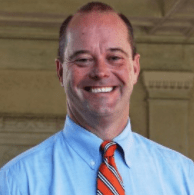
Water and Los Angeles: A free ebook version of this title is available through Luminos, University of California Press’s Open Access publishing program for monographs.
Los Angeles rose to significance in the first half of the twentieth century by way of its complex relationship to three rivers: the Los Angeles, the Owens, and the Colorado. The remarkable urban and suburban trajectory of southern California since then cannot be fully understood without reference to the ways in which each of these three river systems came to be connected to the future of the metropolitan region. This history of growth must be understood in full consideration of all three rivers and the challenges and opportunities they presented to those who would come to make Los Angeles a global power. Full of primary sources and original documents, Water and Los Angeles will be of interest to both students of Los Angeles and general readers interested in the origins of the city.
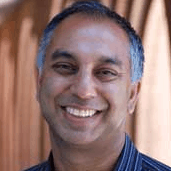
Stranger Intimacy: In exploring an array of intimacies between global migrants Nayan Shah illuminates a stunning, transient world of heterogeneous social relations—dignified, collaborative, and illicit. At the same time he demonstrates how the United States and Canada, in collusion with each other, actively sought to exclude and dispossess nonwhite races. Stranger Intimacy reveals the intersections between capitalism, the state’s treatment of immigrants, sexual citizenship, and racism in the first half of the twentieth century.
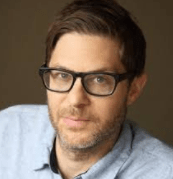
Black and Brown in Los Angeles: The first book to focus exclusively on the range of relationships and interactions between Latinas/os and African Americans in one of the most diverse cities in the United States, the book delivers supporting evidence that Los Angeles is a key place to study racial politics while also providing the basis for broader discussions of multiethnic America. Readers will gain an understanding of the different forms of cultural borrowing and exchange that have shaped a terrain through which African Americans and Latinas/os cross paths, intersect, move in parallel tracks, and engage with a whole range of aspects of urban living. Tensions and shared intimacies are recurrent themes that emerge as the contributors seek to integrate artistic and cultural constructs with politics and economics in their goal of extending simple paradigms of conflict, cooperation, or coalition. The book features essays by historians, economists, and cultural and ethnic studies scholars, alongside contributions by photographers and journalists working in Los Angeles.
10:30am: Jon Lewis, author of Hard-Boiled Hollywood and Kenneth Turan, author of Sundance to Sarajevo in conversation in Nonfiction: Hooray for Classic Hollywood
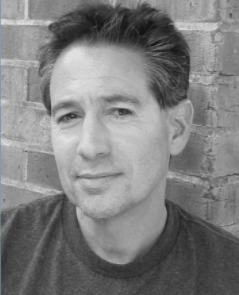
Hard-Boiled Hollywood: The tragic and mysterious circumstances surrounding the deaths of Elizabeth Short, or the Black Dahlia, and Marilyn Monroe ripped open Hollywood’s glitzy façade, exposing the city’s ugly underbelly of corruption, crime, and murder. These two spectacular dead bodies, one found dumped and posed in a vacant lot in January 1947, the other found dead in her home in August 1962, bookend this new history of Hollywood. Short and Monroe are just two of the many left for dead after the collapse of the studio system, Hollywood’s awkward adolescence when the company town’s many competing subcultures—celebrities, moguls, mobsters, gossip mongers, industry wannabes, and desperate transients—came into frequent contact and conflict. Hard-Boiled Hollywood focuses on the lives lost at the crossroads between a dreamed-of Los Angeles and the real thing after the Second World War, where reality was anything but glamorous.”

Sundance to Sarajevo is a tour of the world’s film festivals by an insider whose familiarity with the personalities, places, and culture surrounding the cinema makes him uniquely suited to his role. Kenneth Turan, film critic for the Los Angeles Times, writes about the most unusual as well as the most important film festivals, and the cities in which they occur, with an eye toward the larger picture. His lively narrative emphasizes the cultural, political, and sociological aspects of each event as well as the human stories that influence the various and telling ways the film world and the real world intersect.
12:00pm: Gabriel Thompson, author of America’s Social Arsonist, in conversation in Lost Stories of the West
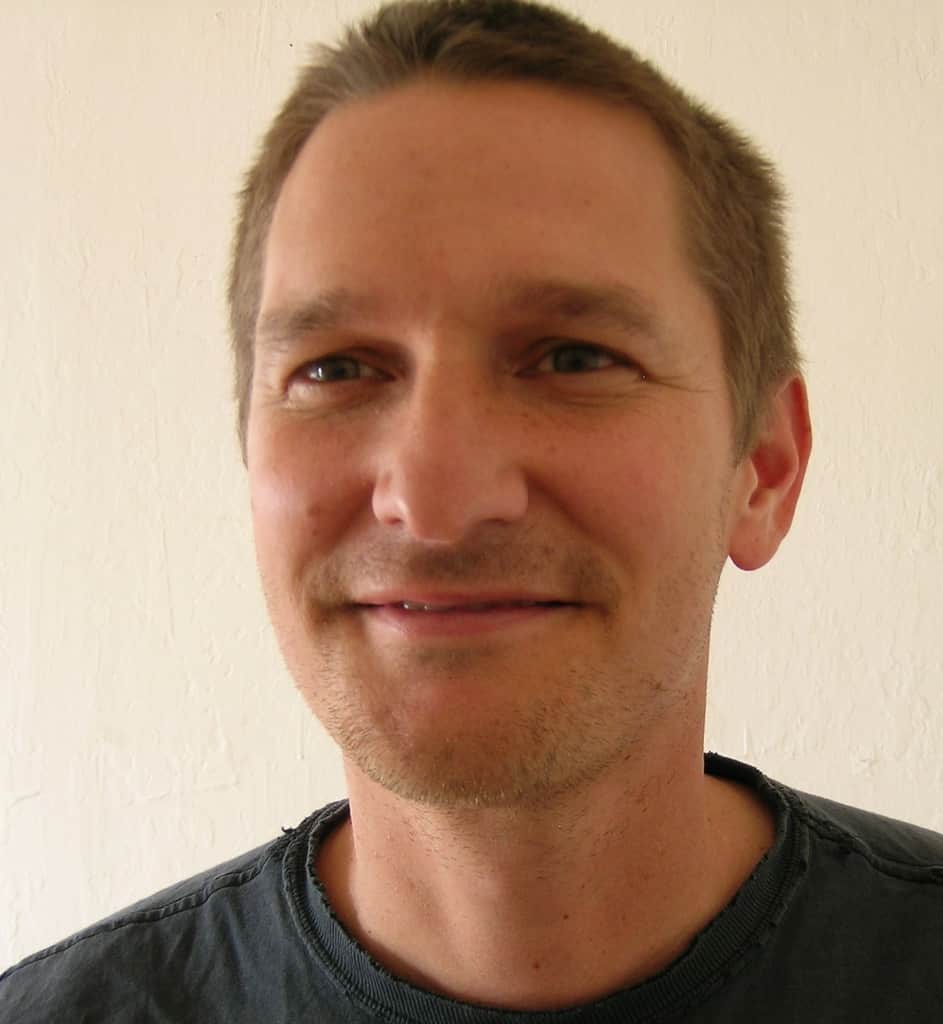 Raised by conservative parents who hoped he would “stay with his own kind,” Fred Ross instead became one of the most influential community organizers in American history. His activism began alongside Dust Bowl migrants, where he managed the same labor camp that inspired John Steinbeck’s The Grapes of Wrath. During World War II, Ross worked for the release of interned Japanese Americans, and after the war, he dedicated his life to building the political power of Latinos across California. Labor organizing in this country was forever changed when Ross knocked on the door of a young Cesar Chavez and encouraged him to become an organizer. Until now there has been no biography of Fred Ross, a man who believed a good organizer was supposed to fade into the crowd as others stepped forward. In America’s Social Arsonist, Gabriel Thompson provides a full picture of this complicated and driven man, recovering a forgotten chapter of American history and providing vital lessons for organizers today.
Raised by conservative parents who hoped he would “stay with his own kind,” Fred Ross instead became one of the most influential community organizers in American history. His activism began alongside Dust Bowl migrants, where he managed the same labor camp that inspired John Steinbeck’s The Grapes of Wrath. During World War II, Ross worked for the release of interned Japanese Americans, and after the war, he dedicated his life to building the political power of Latinos across California. Labor organizing in this country was forever changed when Ross knocked on the door of a young Cesar Chavez and encouraged him to become an organizer. Until now there has been no biography of Fred Ross, a man who believed a good organizer was supposed to fade into the crowd as others stepped forward. In America’s Social Arsonist, Gabriel Thompson provides a full picture of this complicated and driven man, recovering a forgotten chapter of American history and providing vital lessons for organizers today.
3:00pm: William Deverell, author of Water and Los Angeles and Eden by Design, in conversation in Nonfiction: Tragedies of Our Past

In 1930 the Olmsted Brothers and Harland Bartholomew & Associates submitted a report, “Parks, Playgrounds, and Beaches for the Los Angeles Region,” to the Los Angeles Chamber of Commerce. After a day or two of coverage in the newspapers, the report dropped from sight. The plan set out a system of parks and parkways, children’s playgrounds, and public beaches. It is a model of ambitious, intelligent, sensitive planning commissioned at a time when land was available, if only the city planners had had the fortitude and vision to act on its recommendations.
“Parks, Playgrounds, and Beaches” has become a highly valued but difficult-to-find document. In this book, Greg Hise and William Deverell examine the reasons it was called for, analyze why it failed, and open a discussion about the future of urban public space.
3:30pm: Mugambi Jouet, author of Exceptional America, in conversation in What’s Up with America
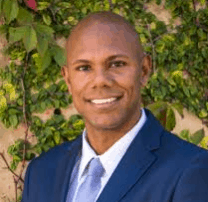 Why did Donald Trump follow Barack Obama into the White House? Why is America so polarized? And how does American exceptionalism explain these social changes?
Why did Donald Trump follow Barack Obama into the White House? Why is America so polarized? And how does American exceptionalism explain these social changes?
Jouet describes why Americans are far more divided than other Westerners over basic issues, including wealth inequality, health care, climate change, evolution, gender roles, abortion, gay rights, sex, gun control, mass incarceration, the death penalty, torture, human rights, and war. Raised in Paris by a French mother and Kenyan father, Jouet then lived in the Bible Belt, Manhattan, and beyond. Drawing inspiration from Alexis de Tocqueville, he wields his multicultural sensibility to parse how the intense polarization of U.S. conservatives and liberals has become a key dimension of American exceptionalism—an idea widely misunderstood as American superiority. While exceptionalism once was a source of strength, it may now spell decline, as unique features of U.S. history, politics, law, culture, religion, and race relations foster grave conflicts. They also shed light on the intriguing ideological evolution of American conservatism, which long predated Trumpism. Exceptional America dissects the American soul, in all of its peculiar, clashing, and striking manifestations.
3:30pm: David L. Ulin, author of Sidewalking and Josh Kun, author of Black and Brown in Los Angeles in conversation in Nonfiction: The Culture of Southern California

Sidewalking: “In this brief but engaging book, Ulin chronicles his wanderings through the streets and his conversations with friends, entrepreneurs, and officials, and he makes it clear that he has read every book and seen every movie on his subject. Those who know the city will have the advantage, but Ulin casts his net widely, so most readers will enjoy his observations of Los Angeles in literary and popular art as well as his thoughtful personal views.”—Kirkus

Black and Brown in Los Angeles: “Exceeds [its] categories and adds to an emerging corpus of comparative knowledge . . . the book shows what interdisciplinary scholarship can do for America’s understanding of itself, especially when it comes to culturally promiscuous, ethnically heterogeneous megapolises like LA.”—Ryan Boyd The Los Angeles Review

